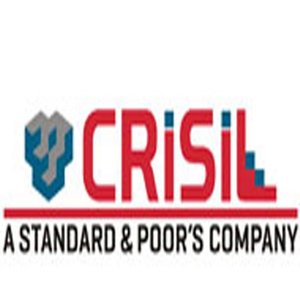What is the full form of CRISILCRISIL: Credit Rating Information Services of India LimitedCRISIL stands for Credit Rating Information Services of India Limited. It is a global analytic company providing ratings, research, and risk and policy advisory services. Its headquarters is in Mumbai, India. Standard and Poor's (S&P) is the majority shareholder of CRISIL, so it is also called Standard & Poor's company. As of 2017, Ms. Ashu Suyash is the MD & CEO of the company. 
The analyses and solutions of CRISIL help investors, lenders, borrowers, and regulators make correct decisions. It helps clients manage risks and generate more revenue by making the right decisions related to products, services, and pricing. It also promotes economic growth in emerging markets by shaping public policies on infrastructure in these regions. Its mission is to provide independent opinions, actionable insights, and effective solutions to make markets function better. It believes in integrity, excellence, accountability, and teamwork. Today, CRISIL is serving more than 100000 customers across 86 countries. The company operates its business in 8 countries which include India, China, Hong Kong, Singapore, Argentina, Poland, the UK, and the USA. Who CRISIL ServeCRISIL serves the entire spectrum of financial service players ranging from leading commercial and investment banks, insurance companies, consulting firms, private equity players, and asset management companies to small companies and investors. The company also works with governments and policy-makers of a country. It helps its clients to make better investments and business decisions. Brief History
How Do Ratings Affect Investment Choices?Investors may make better investment selections thanks to the credit score of an issuing firm, which provides insight into the legitimacy of the business. Additionally, rating agencies constantly time the market. As a result, investors who are short on time and expertise must choose whether to hold or sell the item. A good credit rating indicates a safe investment option with a low danger of bankruptcy. It is useful for narrowing down a list of potential investment vehicles from a collection of financial instruments. How do mutual fund schemes rate by CRISIL?One of the methods employed around the world is CRISIL's approach to grading mutual funds. Institutional investors, ordinary investors, middlemen, and asset management firms all embrace it. For ranking purposes, only open-ended funds are taken into account. Funds from a variety of categories, including equities, debt, and hybrid asset classes, are included in the CRISIL Mutual Fund Ranking. For evaluation, it combines portfolio-based qualities with Net Asset Value (NAV). On a scale of 1 to 5, the rankings are provided. CRISIL Fund Rank 1 denotes the top 10% of funds in each category, while CRISIL Fund Rank 2 denotes the top 20% of funds. Additionally, CRISIL offers private banking organisations and asset management companies customised mutual fund rankings. The ranking is carried out for the funds that the clients have chosen and have narrowed down.
Next TopicFull Form
|
 For Videos Join Our Youtube Channel: Join Now
For Videos Join Our Youtube Channel: Join Now
Feedback
- Send your Feedback to [email protected]
Help Others, Please Share










